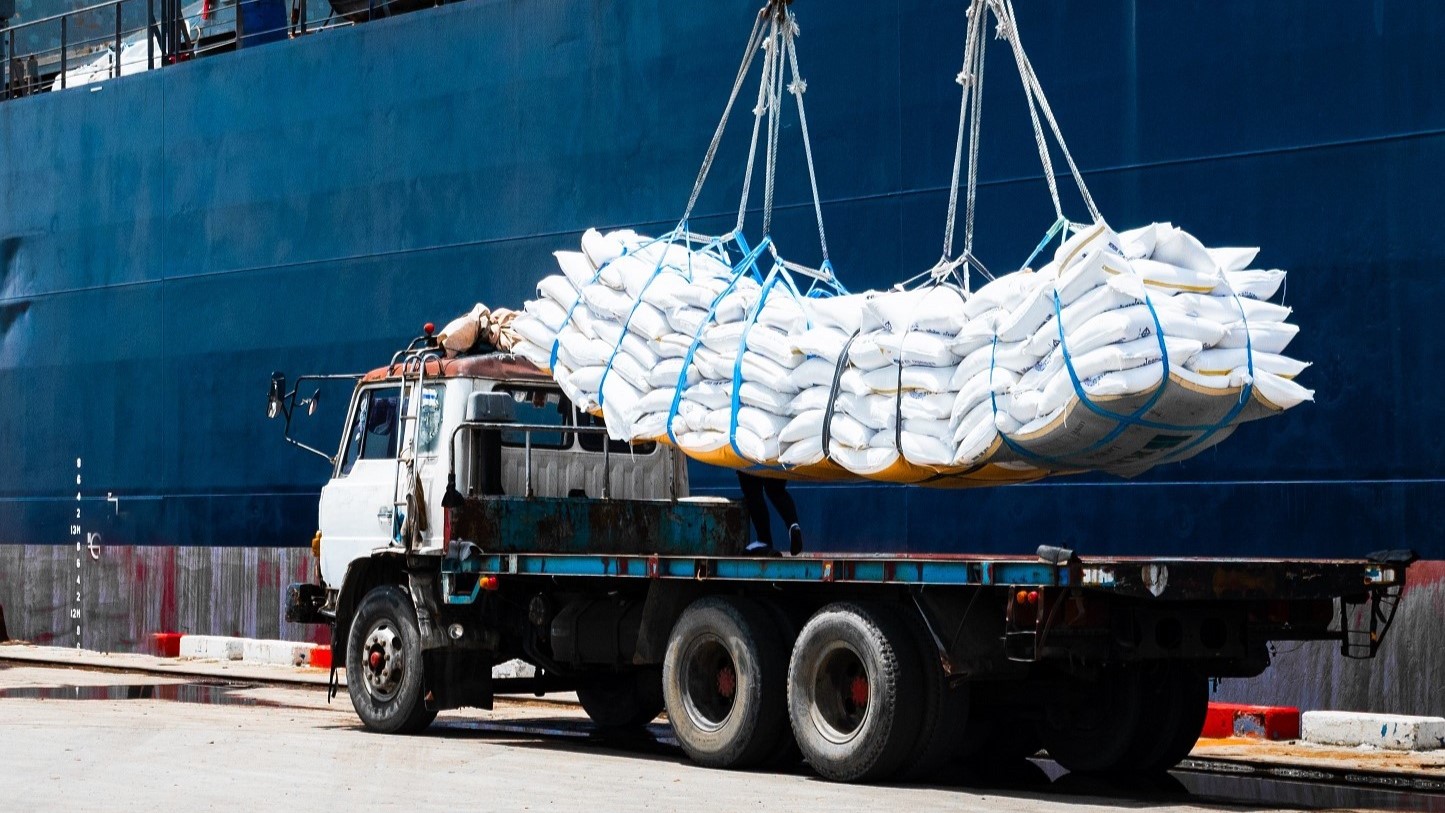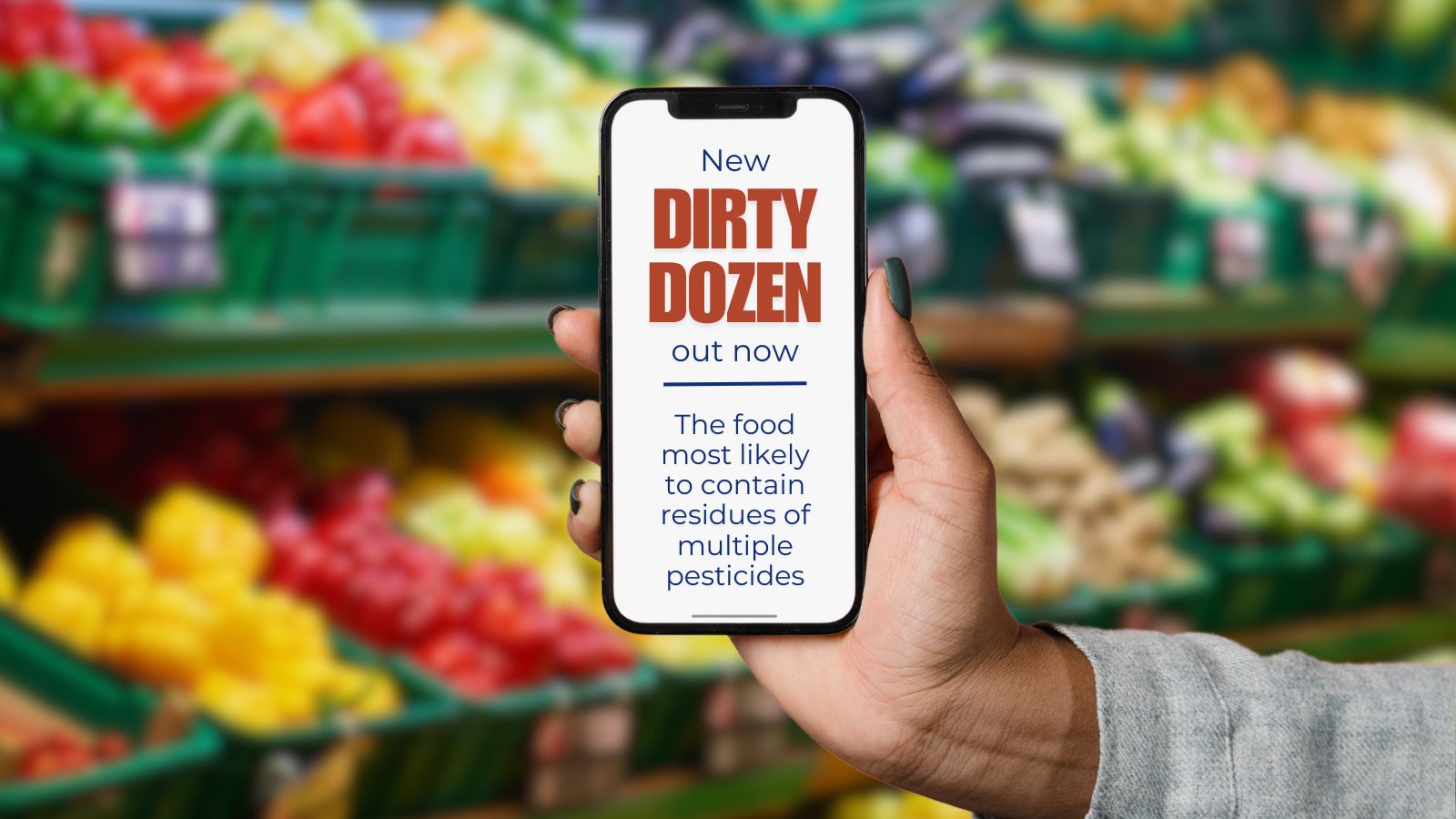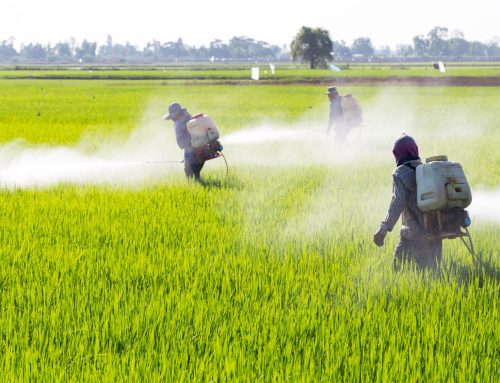Analysis launched today shows that food imported into Great Britain may pose a greater risk to consumer health than domestically grown produce. The most recent testing by the UK government detected 46 pesticides with links to cancer on imported produce, compared to 19 on food of UK origin.
These results were mirrored by other pesticides of concern. Between two and three times the number of both “developmental or reproductive toxins” (which negatively affect sexual function and fertility) and neurotoxins (impacts the nervous system) were detected in imports when compared with UK produce. Imported food was also found to contain more than double (29 to 12) the number of Endocrine Disrupting Chemicals which can interfere with hormone systems leading to a range of health problems including cancers and birth defects.
Following April’s headline news that some pesticides contain PFAS “forever chemicals”, the analysis also revealed that, while five PFAS pesticides were present in UK-grown food, the figure jumped to 12 for imports. Branded as “forever chemicals” because of their ability to accumulate in the blood, bones and tissue of humans and other living organisms, PFAS exposure has been linked to a range of serious health problems including increased risk of cancers and lowering of the immune system’s ability to fight infections.
“While the results for UK produce are also concerning, when it comes to pesticides that pose a risk to consumer health, imports tend to be far worse than food grown here in the UK. The imported food tested by the government contained almost three times the number of Highly Hazardous Pesticides, including carcinogens, endocrine disruptors and neurotoxins. With rates of diseases such as cancer and Parkinson’s on the rise, we should be doing everything we can to reduce our chemical exposure. But the UK government is allowing larger amounts of chemicals to appear in an ever-growing list of common food items. They urgently need to reverse this current trend.” Nick Mole, PAN UK
These warnings come alongside the launch of PAN UK’s annual “Dirty Dozen” which lists the produce most likely to contain cocktails of multiple pesticides. Topping the list this year is soft citrus, which includes satsumas, tangerines and clementines. Despite some food items showing residues of up to 12 different pesticides, government safety limits continue to be set for just one chemical at a time, ignoring evidence that chemicals can become more harmful when combined.
Looking beyond these 12 “worst offenders”, the analysis reveals that 31% of food grown in the UK contained more than one pesticide while for imports the figure was 55%. Three times the amount of imported produce was found to contain levels of individual pesticides that exceed the UK’s legal safety limits. Indian beans were the most problematic with illegally high levels of residues detected in 10 of the 25 samples tested. The UK is in the midst of negotiating a trade deal with India so food imports from India are likely to increase.
“We’ve long been concerned that new trade deals signed by the UK since EU exit pose a major risk to the health of British consumers. This is especially true when it comes to countries like India that struggle with high pesticide residues in their food exports. There are major questions over whether British border controls are robust enough to detect food imports contaminated with pesticides and prevent them from reaching our plates. And yet, when we’ve pointed out these risks to the UK government, they refuse to take them seriously. Given that today’s findings are based on imports that have already made it past our borders, we strongly urge the government to take action to protect British consumers.”

Imported food was also found to contain residues of 48 pesticides that are not approved for use by British farmers. This hands foreign growers a competitive advantage because they can farm more cheaply using chemicals banned in Great Britain due to the harms they cause to human health and the environment. Unapproved pesticides detected included carbaryl and diazinon, both Endocrine Disrupting Chemicals with links to cancer. The highly bee-toxic neonicotinoid imidacloprid – banned for use on UK crops since 2018 – was found on produce including potatoes, peas and grapes imported from a range of countries.
“By allowing banned pesticides in our imports, the UK is exporting its environmental and human health footprint abroad. Farmworkers and wildlife in countries where our food is grown are exposed to these dangerous chemicals and will suffer the associated harms. It also undermines British farmers at a time when we are asking them to produce more sustainably”, said Mole. “But any drop in British pesticide standards will be a major problem for trade with the EU, which could also devastate UK farming. If the government is serious about protecting British consumers and supporting our farmers, it can kill two birds with one stone by not allowing food imports grown using pesticides banned for use domestically to enter Great Britain.”






